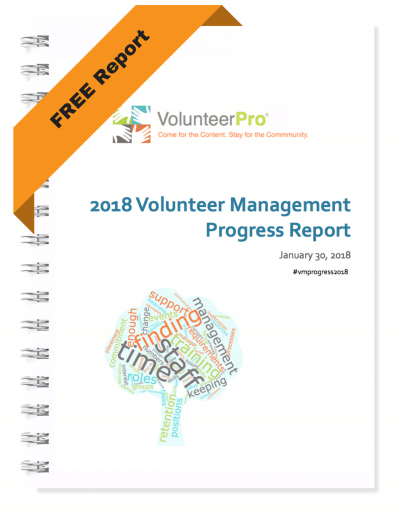The recently published 2018 Volunteer Management Progress Report once again highlights the range of job titles in our profession, across the world. Although there is a slight increase in ‘Coordinators’, and a small decrease in ‘Managers’ in practice Coordinator and Manager roles are likely to overlap, with similar tasks and responsibilities.
This echoes the IVMD Survey carried out by AVM in 2017. A third of survey recipients indicated that their role was non-managerial. Their job titles included Officer / Coordinator / Supervisor / Engagement. With the potential to negatively impact on the scope for career progression, particularly for new entrants to the industry, improved consistency in naming conventions is needed.
The report also identified time as a challenge for volunteer managers. A proportion of respondents had other core responsibilities alongside their volunteer management role, facing the reality of splitting time between competing workloads. Do competing workloads compromise the ability of volunteer managers to be effective? Is more investment needed?
The answer may seem obvious but the question is not new. In 2008 the Institute for Volunteering Research’s Management Matters survey found that:
Volunteers are often a vital resource for organisations, yet it would appear that many are not dedicating significant resources to their involvement….While human resources are more readily available for managing volunteers, they are often dispersed and may be hidden within people’s wider roles. (p.7-8, IVR, 2008)
A disappointing trend is the lack of budget assigned to volunteer management. For many of us necessity really is the mother of invention when it comes to managing volunteer programmes but this should be the exception, and not the norm. An under-financed programme is unlikely to reach its true potential. 16% of the IVMD Survey recipients highlighted budget, resources and finance as an existing challenge they faced in their role, but 25% cited this as a challenge for the sector in the next few years.

Good budget management provides evidence for sustainability and growth, and all organisations promoting and relying on volunteers should properly fund this endeavour, and provide budget writing and management training for their volunteer managers.
The 2010 Valuing Volunteer Management Skills study acknowledges the difficulty in developing a relevant training programme for volunteer managers given that their role is rarely standalone. It should be noted that the earlier survey recognises that barriers to training opportunities may deter those who are new to the role but are not hampering the development of models of good practice by longer standing practitioners.
Although there was a correlation to salary, there were still relatively high levels of satisfaction amongst volunteer managers, and this has been consistent in the time that the survey has been produced. Role satisfaction is closely matched by the intention to continue working in this field. It’s not only volunteers who find the environment rewarding but also volunteer managers!




